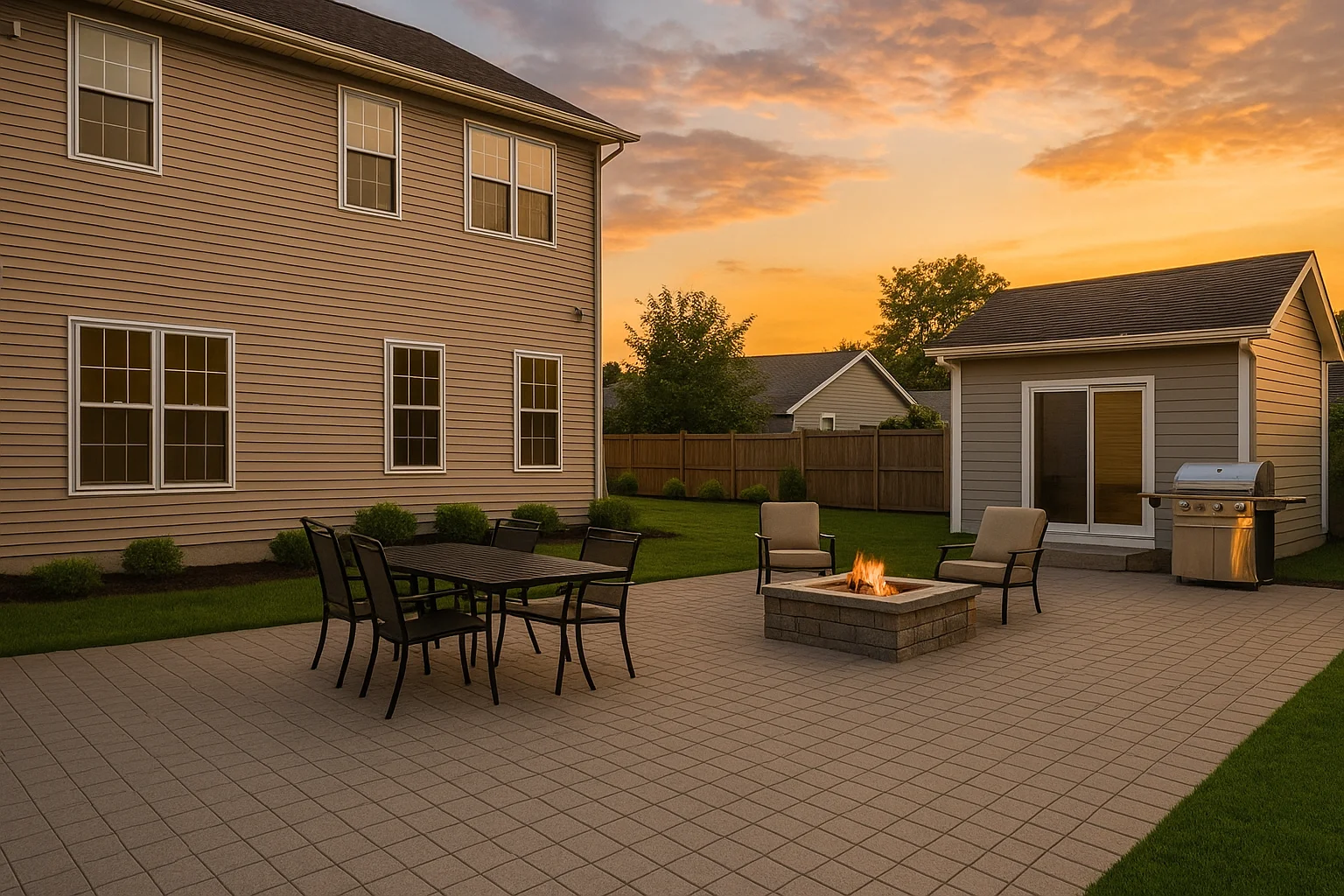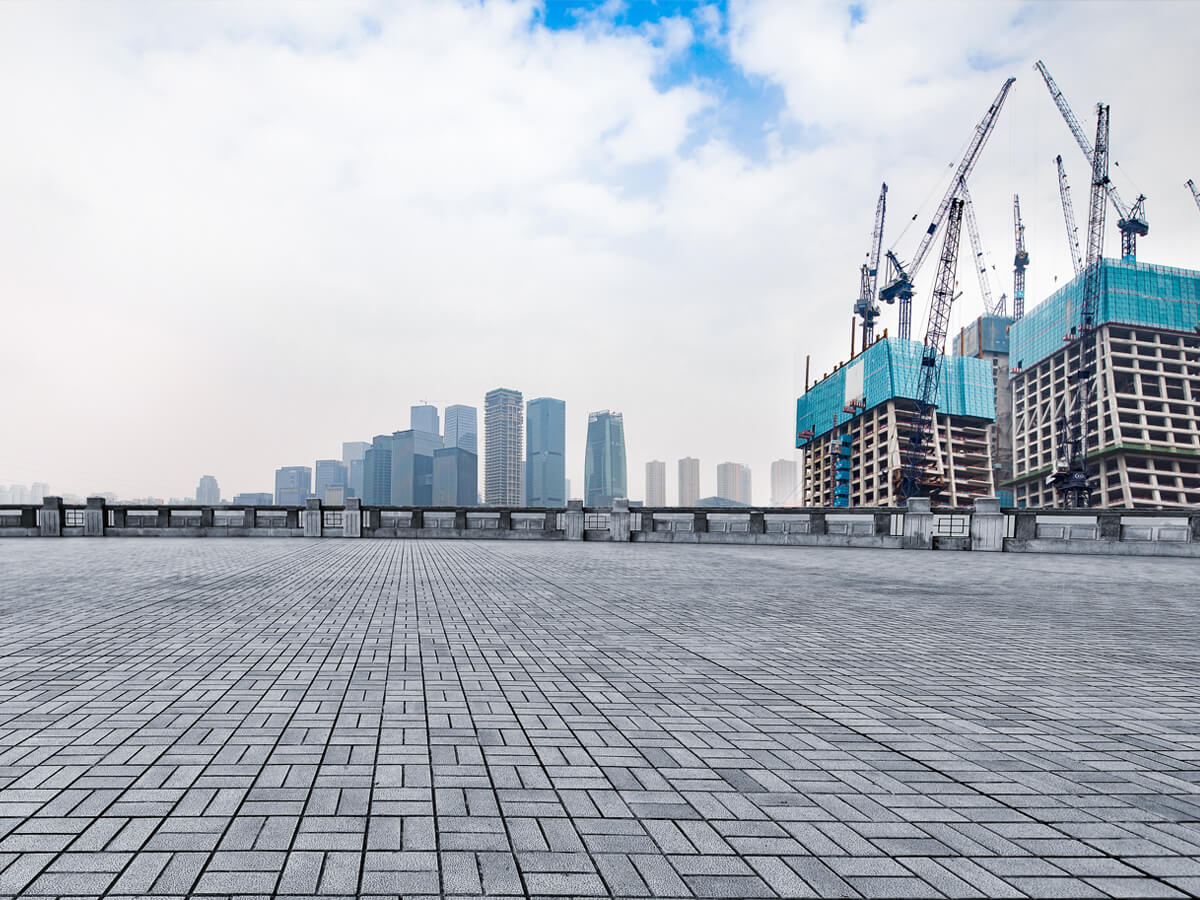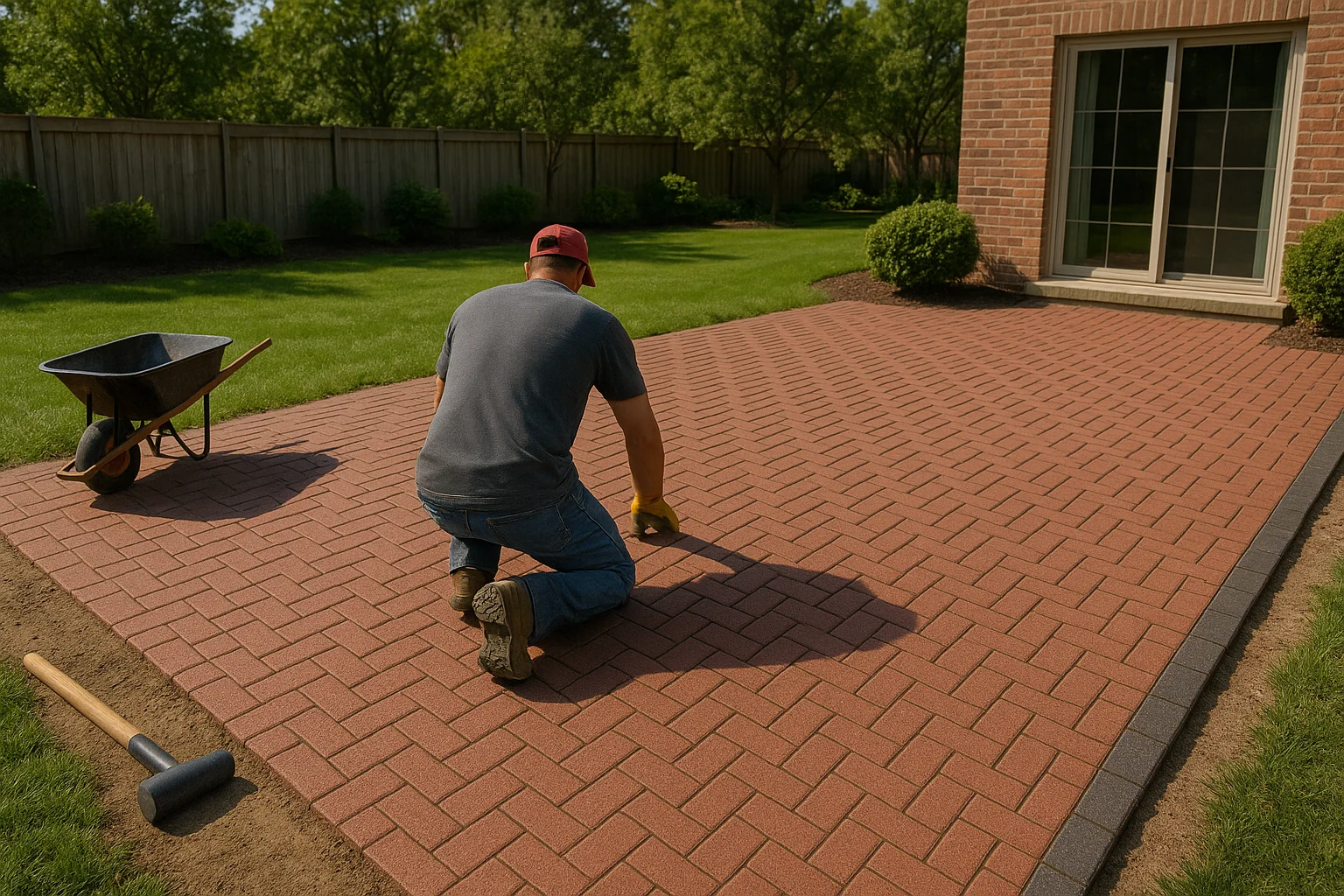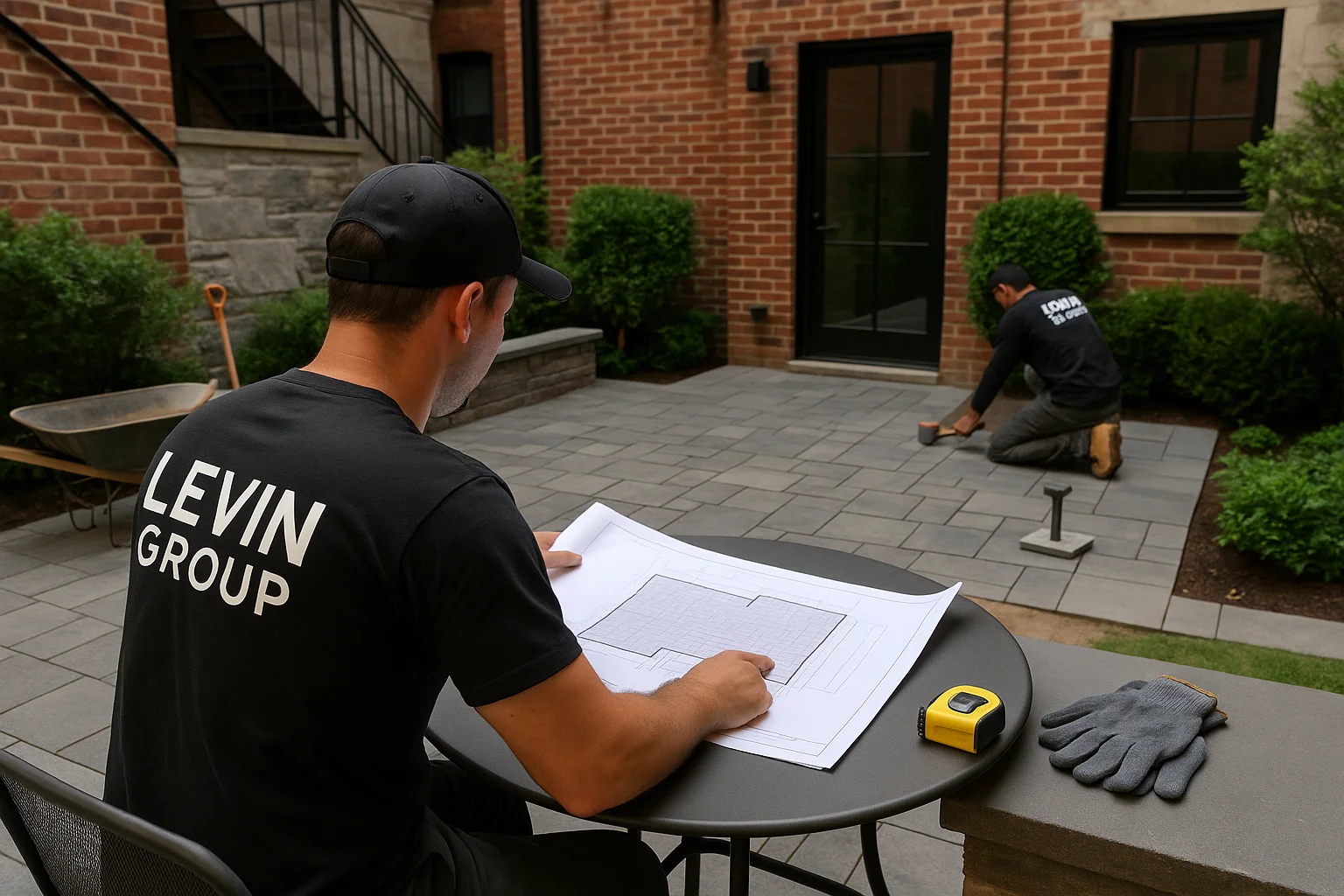
Durable & Elegant Paving for Patios, Driveways, Walkways & More
Our Paver Installation Process
We deliver clean, level, and long-lasting results with every project:
- Consultation & Design – We help select the right paver style, layout, and pattern for your space and goals.
- Site Preparation – Old surfaces are removed, the base is leveled, and drainage is properly planned.
- Base Installation – Crushed stone and sand layers are compacted for a stable, long-term foundation.
- Paver Laying – Pavers are installed with precision alignment and pattern integrity.
- Edging & Sealing – Borders are secured, joints filled, and the surface sealed for protection and beauty.
- Final Cleanup – We leave your property neat and ready to enjoy.


Types of Pavers We Install
We offer a wide range of paver options to suit various aesthetic preferences and functional needs. Explore the different types of pavers we professionally install:
- Concrete Pavers: Known for their versatility, cost-effectiveness, and durability, concrete pavers are an excellent choice for both residential and commercial projects.
- Brick Pavers: Offering a classic charm, brick pavers stand out with their rich, traditional appearance coupled with excellent structural strength.
- Natural Stone (Bluestone, Travertine, Granite): Perfect for those seeking a premium aesthetic, natural stone pavers provide timeless beauty and long-term resilience, enhancing any outdoor space.
- Interlocking Pavers: Designed to withstand heavy loads, interlocking pavers are ideal for high-traffic areas like driveways, providing both stability and style.
- Custom Layouts: From intricate herringbone patterns to basketweave and running bond designs, our custom layouts add unique character to any project.
Why Choose US Levin Group?
- Licensed & Insured Specialists: Our NYC hardscaping experts are fully licensed and insured, ensuring compliance with city regulations and providing peace of mind for every project.
- Fully Customized Designs: We create unique, tailored designs for patios, driveways, walkways, and pool decks, bringing your vision to life with precision and creativity.
- Fast & Professional Installations: Our team guarantees swift, professional installations, focusing on meticulous attention to detail to deliver superior results.
- Free Quotes & Transparent Timelines: We offer complimentary quotes with clear, detailed timelines to keep your project on track without surprises.
- Trusted by NYC Homeowners & Businesses: Our reputation speaks for itself, with numerous satisfied homeowners and business owners across NYC relying on our expertise.

FAQ
How much does paver installation cost?
The cost of paver installation varies based on the type of pavers, area size, site preparation, and labor. On average, homeowners pay between $10 and $30 per square foot. Concrete pavers are the most budget-friendly, while natural stone and brick options are more expensive due to material and labor costs.
What types of pavers are available for installation?
Popular types of pavers include concrete, brick, natural stone (such as travertine or granite), and permeable pavers. Concrete pavers offer versatility and durability, while brick provides a classic look. Natural stone pavers are elegant and long-lasting, ideal for upscale patios and walkways.
How long does paver installation take?
Paver installation typically takes 2 to 5 days depending on the project size, design complexity, and weather conditions. This includes site preparation, base compaction, paver laying, cutting, and joint sanding. Larger or intricate installations may require additional time.
Do pavers require maintenance?
Yes, pavers require regular maintenance to stay in good condition. This includes sweeping debris, pressure washing, reapplying joint sand, and sealing every 2–3 years to protect against stains and weed growth. With proper care, pavers can last for decades with minimal repairs.
Are pavers better than concrete slabs?
Pavers are generally more durable and visually appealing than concrete slabs. They are resistant to cracking, easier to repair, and offer greater design flexibility. While concrete slabs may cost less upfront, pavers provide better long-term value and curb appeal.
Can pavers be installed on a slope?
Yes, pavers can be installed on slopes with proper grading and base preparation. Installing pavers on a slope may require retaining edges or steps to prevent movement and ensure stability. Professional installation is recommended to ensure long-lasting and safe results.
Do I need a permit for paver installation?
Permit requirements for paver installation vary by location. In many cases, a permit is not required for patios or walkways on private property. However, permits may be needed if the installation affects drainage, public sidewalks, or driveways. Always check with your local building department before starting the project.
What is the best base material for paver installation?
A solid base is essential for long-lasting paver installations. The best base typically includes a layer of compacted crushed stone or gravel topped with a layer of sand. This combination provides stability, drainage, and a smooth surface for laying pavers evenly and securely.
How does paver installation increase property value?
Paver installations enhance curb appeal and increase property value by creating attractive, durable outdoor living spaces. A well-designed patio, walkway, or driveway made from quality pavers improves the home’s aesthetic and functionality, making it more desirable to potential buyers.
